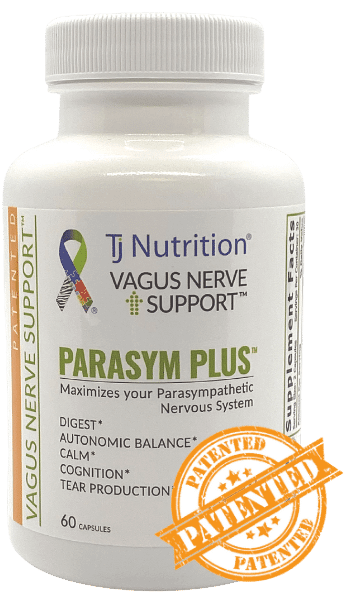The aging process involves many changes in your body! Some changes are good — wisdom, maturity, and increased spirituality are only a few of the possible positive shifts that can occur over time Some are less exciting — the changes we can see in the mirror, for example. As aging progresses, you may not possess the energy you used to and you may need to rest between tasks. You may experience deficits in short-term memory and disruptive sleep. Vision may change as eyes become dry and they may be more sensitive to light. You may be more prone to a sluggish digestive tract or constipation. You may lose weight or get low in nutrients more easily.
The onset of such symptoms due to inflammation could be an early sign of age-related disease. This phenomenon is described as “inflammaging” and it may surprise you to know the same symptoms seniors experience are actually the same as those found in individuals with chronic inflammation. Are these changes a necessary consequence of aging or of chronic conditions that result in inflammation? How can we fight back to be the best version of ourselves?
Understanding Inflammaging
The term “inflammaging” combines the words inflammation and aging (inflamm-aging) and describes the low-grade, chronic, systemic inflammation that begins to grow as you age. When studied, the onset of inflammaging was found to be a highly significant risk factor for both morbidity and mortality for seniors. In this study of seniors with inflammaging, it was found that the condition can lead to the pathology of diseases commonly associated with old age, such as cardiovascular disease & atherosclerosis, Alzheimer’s disease, osteoporosis, and diabetes. Researchers even found an increased vulnerability to infectious disease with the onset of inflammaging.
There are several factors that contribute to the onset of inflammaging and the age at which it begins to affect us. These factors include exposure to certain physical, chemical, and biological antigenic agents (stressors) like heat, UV, and gamma radiation, products of metabolism such as oxygen-free radicals and reducing sugars, and exposures to bacteria and viruses. Of course, genetics also plays a role and may contribute to the variance from one individual to the next. For example, some people may be poorly protected against oxygen radicals in comparison to others. Therefore, these individuals will experience more oxidative damage. Great protection creates better longevity and health.
Inflammaging is also caused by changes that take place in your body as you age. You begin to produce more inflammatory chemicals such as interleukins, tumor necrosis factor, and other cytokines, all of which contribute to inflammation. These changes are further compounded by reduced responsiveness and impaired communication between immune system cells. Inflammaging usually happens slowly and over many years, making it difficult to identify early in a clinical setting. Often by the time it’s identified, the disease has already begun to set in as a consequence of this chronic inflammatory state.
Premature Aging
The symptoms of chronic inflammation and those symptoms that become more prevalent with age are much the same. Many people who deal with chronic inflammation for genetic reasons age prematurely — on their insides!
Acute inflammation, while helpful in the fight against infection and injury during the acute phase (such as getting the flu or spraining an ankle), can become a destructive force if chronic. People whose genetics or illnesses cause chronic inflammation can present with similar symptoms and illnesses as those who are significantly older. Both sets of people are dealing with inflammaging, and both can be proactive to help themselves be healthier.
How Do You Protect Yourself from Inflammaging?
While the effects of inflammaging can seem quite daunting, there are a few things you can do to help protect yourself and perhaps even delay or negate inflammaging. Even if inflammaging has gotten to the point of disease, changes can be made to improve symptoms, many of which are within easy grasp. For example, both diet and exercise are known factors in the creation and elimination of a chronic inflammatory state. Adipose fat can increase inflammation while maintaining a healthy weight and an age-appropriate diet can help to prevent it. Exercise, even light exercise for short periods, can also have a profound effect on inflammaging and other chronic inflammatory states. Even 60 minutes per week of moderate exercise can have a positive impact and increase longevity by 18%.
The body has a method to help control runaway inflammation — the vagus nerve. The vagus nerve is the anti-inflammatory nerve of the body and controls part of the parasympathetic nervous system (the “rest and digest” system of the body). To maximize the function of this nerve, you can support the chemical it uses to communicate with the body — acetylcholine.
Acetylcholine is also used by the brain for short-term memory and to organize our thoughts. And it is used by the lacrimal nerve to help us produce tears.
With age, acetylcholine production and release decline — encouraging more inflammation as well as a decline in cognition (mental sharpness) and an increase in dry eyes. The reduction of vagus nerve function also contributes to poor digestion and constipation. Symptoms of low acetylcholine release include dry eyes, poor short-term memory or brain fog, fatigue which worsens with exertion, constipation, flushing, and tachycardia — among others.
Acetylcholine is used by both the brain and the gut and helps to create better communication between the two through its positive effects on the vagus nerve, improving digestion and reducing symptoms of constipation. Its effect on the lacrimal nerve helps the lacrimal gland to function properly, moistening your eyes and creating tears. Acetylcholine helps your mind to transfer short-term memory to long-term memory, through a complex network of nerves and synapses. It can even help regulate blood pressure, calm the nervous system and help to attain better sleep quality.
While you can’t turn back the clock, you can maintain healthy acetylcholine levels. You can fight inflammaging! Support your vagus nerve and acetylcholine levels to be the best you can be.
Dr. Diana Driscoll has received two patents to date to support the vagus nerve and acetylcholine levels. This new science is helping people optimize their health today











